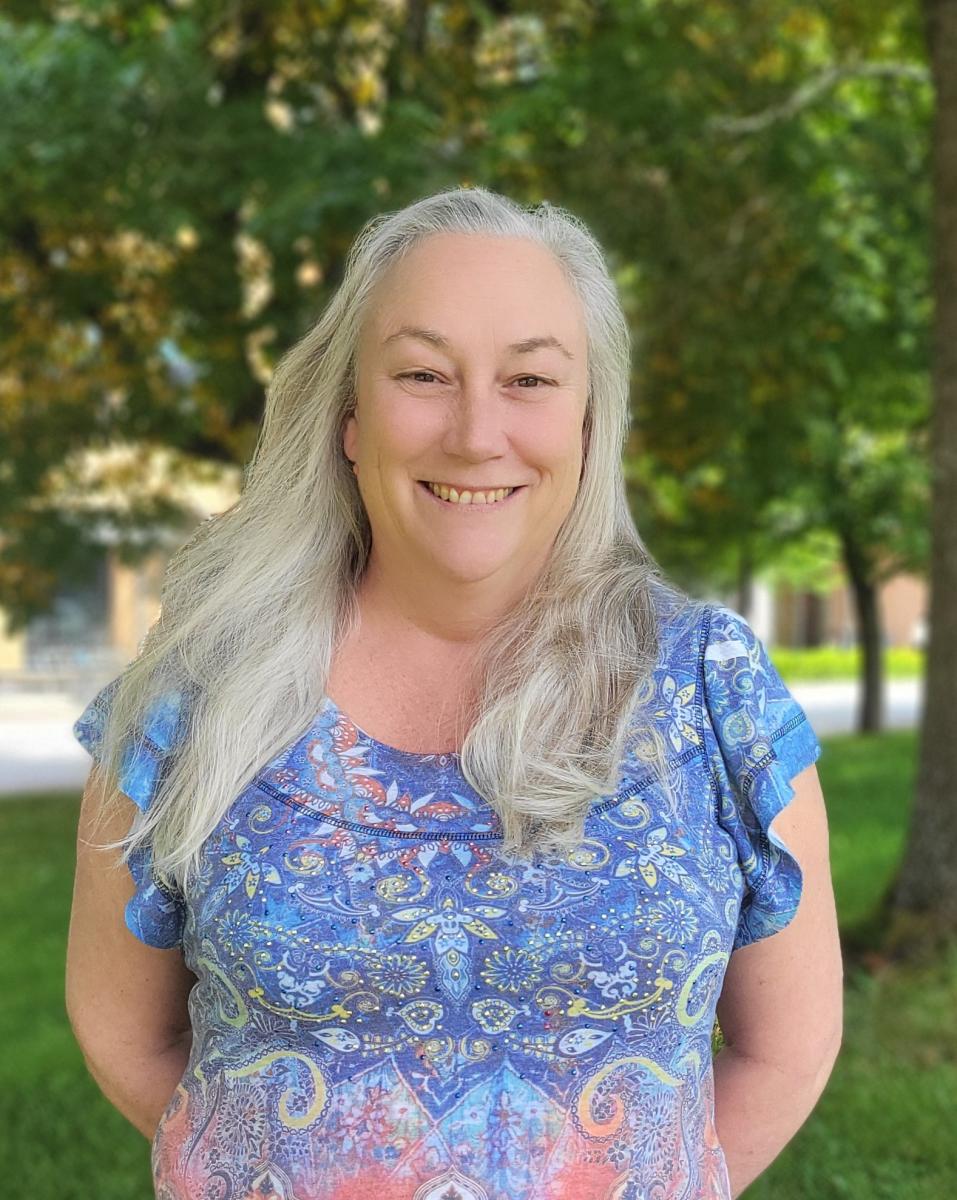Featured coordinator: Erin Kastner, Geospatial Information Manager, Energy and Water Services, UBC

Erin Kastner’s journey into the world of sustainability began as a kid, with a strongly worded letter to The Campbell’s Company after finding their cans too hard to crush for recycling. Having been a Sustainability Coordinator (SC) since 2001, Kastner has been essential in contributing to multiple sustainability initiatives on campus and forming the framework for the future of the SC program.
Growing up in nature, Kastner has always been interested in sustainability and environmentalism. Through the SC program, she’s been able to allocate time and energy to green initiatives while continuing her work as a Geospatial Information Manager with UBC’s Energy and Water Service Department.
Vital to setting up the foundation of the SC program, Kastner created a map of SCs across campus. It started so “we [SCs] could find each other, because at the time I wanted to know who was in the [Leonard S.] Klink building beside us to see if we could share a big compost bin.” The map continued as a way to foster connections and build community amongst the program, leading to Kastner initiating a "floating SC “program. The floating SC position would allow existing Coordinators to support spaces that didn’t have an SC presence and expand their role to start initiatives across campus. Other contributions included participating in a Tri-mentorship program that allowed SCs to work as a group with a graduate and undergraduate students to advance project ideas, as well as co-creating the staff and faculty sustainability pledge.
In the early years of the SC program, Erin was part of the Deskside Recyling (blue bin) roll out, which shows how far the university has come. Now her focus has broadened social justice. She expressed, “I just realized that nobody is going to care about things like recycling and riding their bike to work if they are worried about where their next meals are coming from. So, I've been focusing more on poverty reduction work outside of UBC”. This approach has put things into perspective, about people having different priorities and needs, leading Kastner to view her work with a different lens.
As a trailblazer in the program, her current role relies on her decades of experience, which she often uses to connect people within the community. “I have a good sense of who I need to help me with things and that’s part of the reason why I still stay involved with the program.” She’s found that through various SC events, she learns more about other people’s endeavors and can connect them with others who might be pivotal to the project, in hopes of getting their initiatives off the ground.
Her secret to getting so many projects off the ground? She approaches it as a conversation instead of a mandate, “Instead of needling folks that didn’t even report to me at the time, it was easier to put it to them as a question, like ‘hey, why don't we store our kitchen compost and throw it into a worm bin?’ Or other times I would just set something up myself and then tell them after the fact.”
Thankful to the SC program for aiding with awareness and knowledge dissemination, Kastner enjoys being a part of the community of like-minded folks. While it is often hard to stay motivated, Kastner encourages folks to join programs like the SC program: "If you can be involved with something like the Sustainability Coordinators program, you're always refreshed with hope when you come together. So, if you're feeling down about the world just go to a lunch n’ learn.” She hopes UBC allows SCs more capacity to keep doing good, essential work, and supports their vision in the years to come.